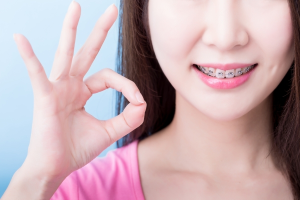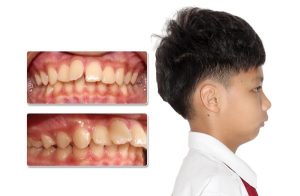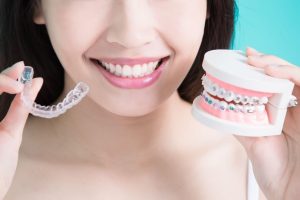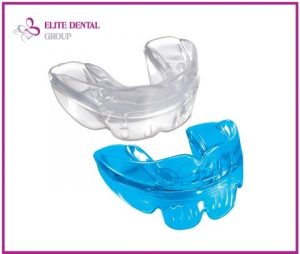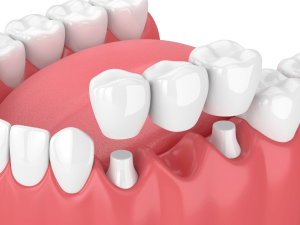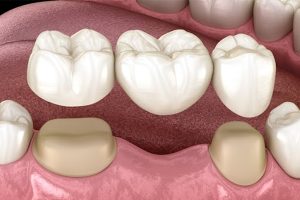Table of content
Crossbite is a common form of bite deviation, not only affecting the aesthetics of the smile but also reducing the ability to chew. Therefore, early recognition and treatment of crossbite teeth is essential to promptly prevent long-term harm and complications. Let’s learn more about this condition with Elite Dental in the following article!
1. What is a crossbite?
Crossbite is a condition in which the teeth on the jaw are divided into many groups that protrude outward or inward, disrupting the symmetry between the two jaws. In many cases, mild bite misalignment does not appear clearly on the face but still makes the patient’s smile appear unnatural and less bright.


2. Characteristics of identifying crossbite
Based on the deviation characteristics, crossbite teeth are divided into 2 main types:
- Crossbite of front teeth (accounts for 4-5% of the population): When the jaw is closed, one or more upper teeth will appear to grow inward compared to the lower teeth.
- Posterior crossbite (accounts for 16% of the population): One or a group of upper teeth grow inward, on the side that is deviated from the lower jaw.
With such an unusual growth direction, the teeth are skewed diagonally, causing the upper and lower jaws to not match properly or harmoniously in terms of tooth position and interdental spaces. At the same time, the line between the front teeth of the two jaws is also misaligned and linked, causing a mismatch in the aesthetics of the entire mouth and many dangerous oral diseases such as periodontal disease, joint pain, tooth loss, etc.
3. What is the reason for crossbite?
There are main causes of crossbite, specifically:
- Due to genetics: If parents, grandparents, or relatives have crossed teeth, it is likely that their children, grandchildren, and family members will also have the same condition.
- Due to abnormal growth of permanent teeth, baby teeth do not fall out, causing permanent teeth to grow behind, and in the wrong position.
- Due to abnormal jaw bone development, such as an underdeveloped upper jaw or overdeveloped lower jaw.
- Due to bad habits such as biting the upper lip, sucking fingers, pushing the tongue, lazy chewing, and using milk bottles or nipples for long periods of time.
4. Is crossbite dangerous?
Teeth that are crooked diagonally cause a loss of facial harmony and aesthetics, and can especially cause the face to be distorted and the chin to be misaligned. In addition, people with crooked teeth have a reduced ability to chew and bite food, thereby affecting the digestive process and making them susceptible to stomach diseases.
Not only that, cleaning crossbite teeth is also very difficult, increasing the possibility of tooth decay, gingivitis, or periodontal disease. More specifically, we cannot be subjective with severe crossbite complications that pose a potential risk of temporomandibular disorder, causing pain in the head, shoulders, and neck and limiting the function of the jaws.

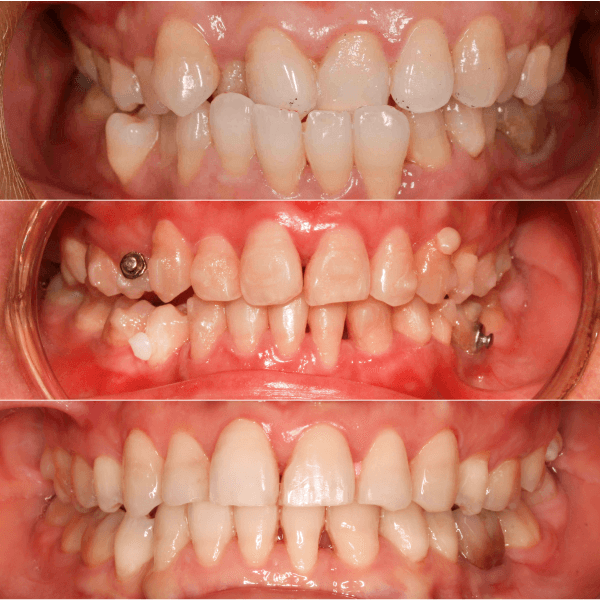
5. When is it most appropriate to correct crossbite?
To prevent the above-mentioned harmful effects, each person should proactively examine and adjust their bite as soon as possible. It is best for children aged 6-12 years old. Because this is the time when children begin to change teeth and the jawbone is in the process of developing, treatment to correct misaligned teeth will be easier and more effective. In addition, when the growing teeth are not yet complete, with the help of appropriate orthodontic appliances at this stage, it is possible to arrange, orient, and create space for the teeth to grow in the correct position, promptly overcoming the problem. permanent teeth grow crookedly, crooked teeth cause a misaligned bite. Therefore, as soon as parents discover that their child has signs of crooked teeth, they should quickly take the child to a reputable dentist for examination. Or it is best when the child is 6-7 years old to visit an orthodontist to examine the condition of teeth and jawbone, abnormalities will be clearly evident.
For adults, crossbites can be completely corrected with appropriate methods and monitoring by an orthodontist with specialized orthodontic knowledge, expertise and experience.
More information: > How to choose a good orthodontist near you? > What is a Receding Chin? Symptoms, Causes, and How to Treat it > Is Invisalign effective for correcting severely Crowded Teeth?
6. How many methods are there to treat crossbites?
Crossbite treatment helps restore chewing function, brings aesthetic effects, and helps maintain good oral health. Currently, there are two commonly used methods of correcting crossbite:
6.1. Braces correct crossbite
Braces are a solution to help you have straight teeth, a standard bite and a radiant smile. Currently, there are 2 methods of braces:
- Braces: This is a traditional orthodontic method that uses a set of appliances including shaped wires and metal or ceramic brackets to create a force to continuously move teeth to the standard position on the jaw. Although this method has an average cost and good effectiveness, it has poor aesthetics, as well as the potential risk of causing irritation and creating a feeling of entanglement and inconvenience for the patient. Should I get braces with metal or ceramic braces?
- Invisalign transparent braces: Superior to the braces method, Invisalign braces use transparent braces made from high-quality materials, individually designed with the ability to hug the teeth. Thanks to that, it not only creates optimal tooth movement efficiency but also has high aesthetics, as well as being easy to remove for cleaning and eating.
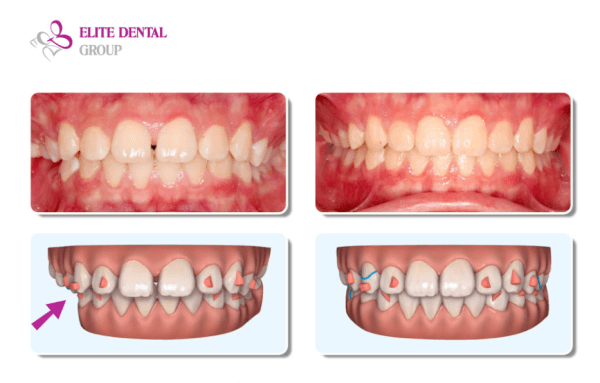
6.2. Crossbite orthopedic surgery
If the degree of crossbite misalignment is severe, mainly due to misaligned bones, it needs to be treated with orthopedic surgery to adjust the jaw structure and move it to the correct bite position. This method requires a lot of recovery time and can cause complications (such as heavy bleeding, infection, etc.), more specifically, it is quite expensive and can easily cause fear in the patient.
Usually, braces can correct crossbites well. Therefore, if you have a crossbite defect, consult an orthodontist for a chance to change your smile to a healthy and confident one. Depending on the condition and level of specific crossbite teeth, appropriate correction methods need to be applied. At the same time, to achieve high treatment efficiency and ensure safety, you need to choose a reputable dental clinic with a team of highly qualified and experienced doctors to help come up with a treatment plan.
7. Crossbite correction at Elite Dental
Elite Dental is a reputable orthodontic address, helps thousands of customers regain their beautiful, bite-correct smiles. Here there is a team of leading orthodontists in Ho Chi Minh City with rich professional knowledge and extensive treatment experience in the orthodontic industry. Remember to calculate exactly how to move teeth, come up with an accurate treatment regimen, and bring about satisfactory results.
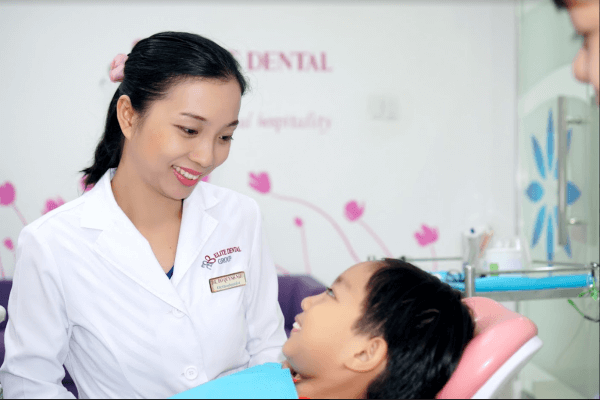
Effective support for the highly specialized team is modern, medical-standard equipment that Elite Dental constantly updates such as Sirona film cameras, growth orthodontic software, 3D tooth scanning technology,… for customers. Customers experience a quality, smooth braces journey, shortening treatment time.
Elite Dental also stores actual data – a “bank” of successful treatment cases, ready for customers to refer to to further strengthen their peace of mind to prepare for the perfect braces journey ahead.
Below are cases where people have encountered many difficulties in living and communicating because of crossbites. But after working with Elite Dental, customers’ beautiful and healthy smiles have been successfully “awakened”:
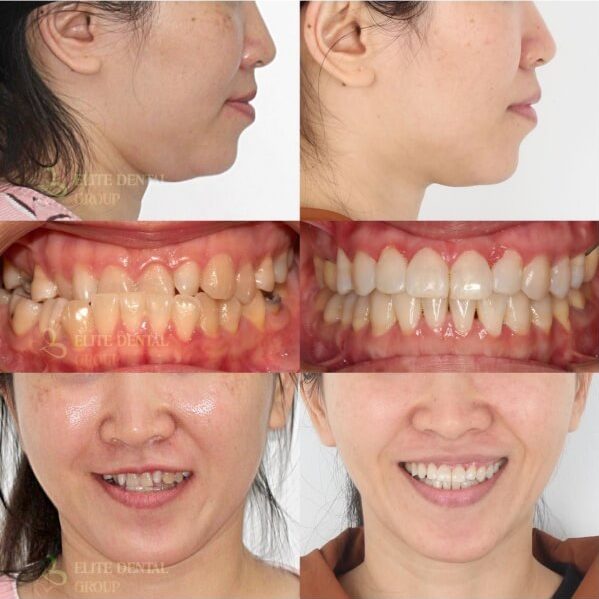


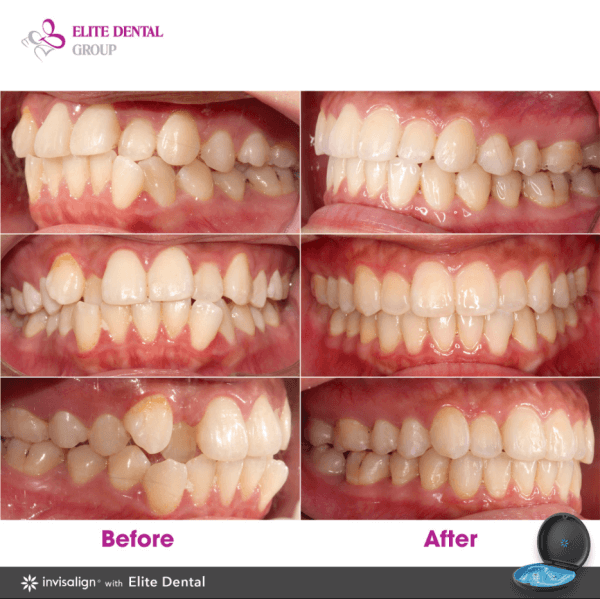
>> Start your journey with Elite Dental to find a healthy smile, fix misaligned bites and many complex joint misalignments HERE.
Crossbite misalignment needs to be corrected early to protect oral health as well as to regain a confident smile. However, to achieve perfect results and optimally correct misalignments, you should choose a reputable, quality dentist to have a safe and effective orthodontic journey!
Related post: > How can Braces correct an Underbite? > Considering Braces? Here's what you need to know > Overbite (Overjet): Can Braces or Invisalign correct the issue?

